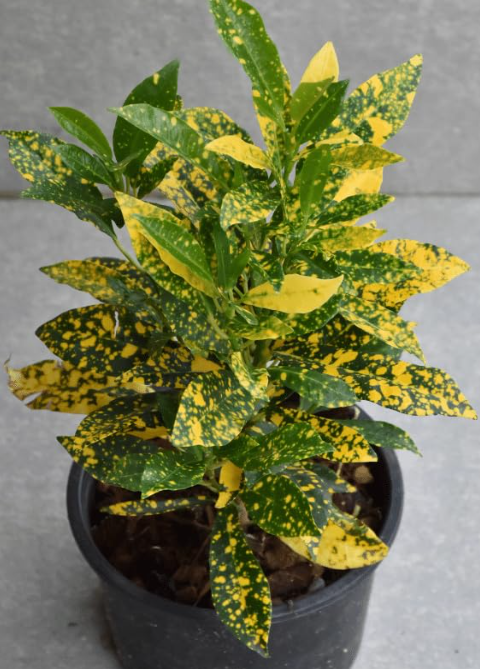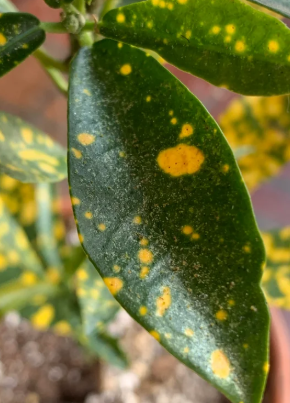Lemon Croton plant
Lemon Croton is a vibrant, tropical shrub with bright yellow-green leaves that thrives in humid conditions and enhances indoor aesthetics with its colorful foliage.

Habit
Perennial Shrub
Height
Growth
Moderate
Soil
Well-drained, slightly acidic loamy soil
Shade
Bright indirect light to filtered sunlight
Moisture
Medium to High
Edible
Medicinal
No (toxic; handle with care)
Origin
Climatic Condition
Tropical to Subtropical
Temperature (°)
20–32°C
Humidity (%)
60–80%Potting media
Peat + Perlite + Compost
Fertilizers
|
Watering
|
Plant Weight
Flowering Time
Soil Ph level
5.5–6.5
Water Ph level
6.0–6.5
Soil EC
1.0–2.0 dS/m
Yield Per Plant
NPK ratio
10:10:10
life Span
Health Benefits
|
Suggested Grow Media or Potting Mix ?
40% peat moss, 30% perlite, 20% compost, 10% sand
Suggested Fertigation/Fertilizers
Fertilize every 4–6 weeks during growing season with balanced foliage fertilizer
Common Diseases and Remedies
Root Rot, Leaf Spot, Powdery Mildew, Mealybugs, Spider Mites.
Yellowing leaves with soft, mushy roots, Dark brown to black spots with yellow halos on leaves, White powdery coating on leaves, White, cottony clusters on stems and leaves, Fine webbing with stippling on leaves.
Improve soil drainage, avoid overwatering, Remove and destroy affected leaves, improve air circulation, Neem oil, sulfur sprays, Insecticidal soap, neem oil, Insecticidal soap, increase humidity, neem oil.
Fungicides with mefenoxam, Fungicides with chlorothalonil, Fungicides with myclobutanil, Insecticides with imidacloprid, Miticides with abamectin.

